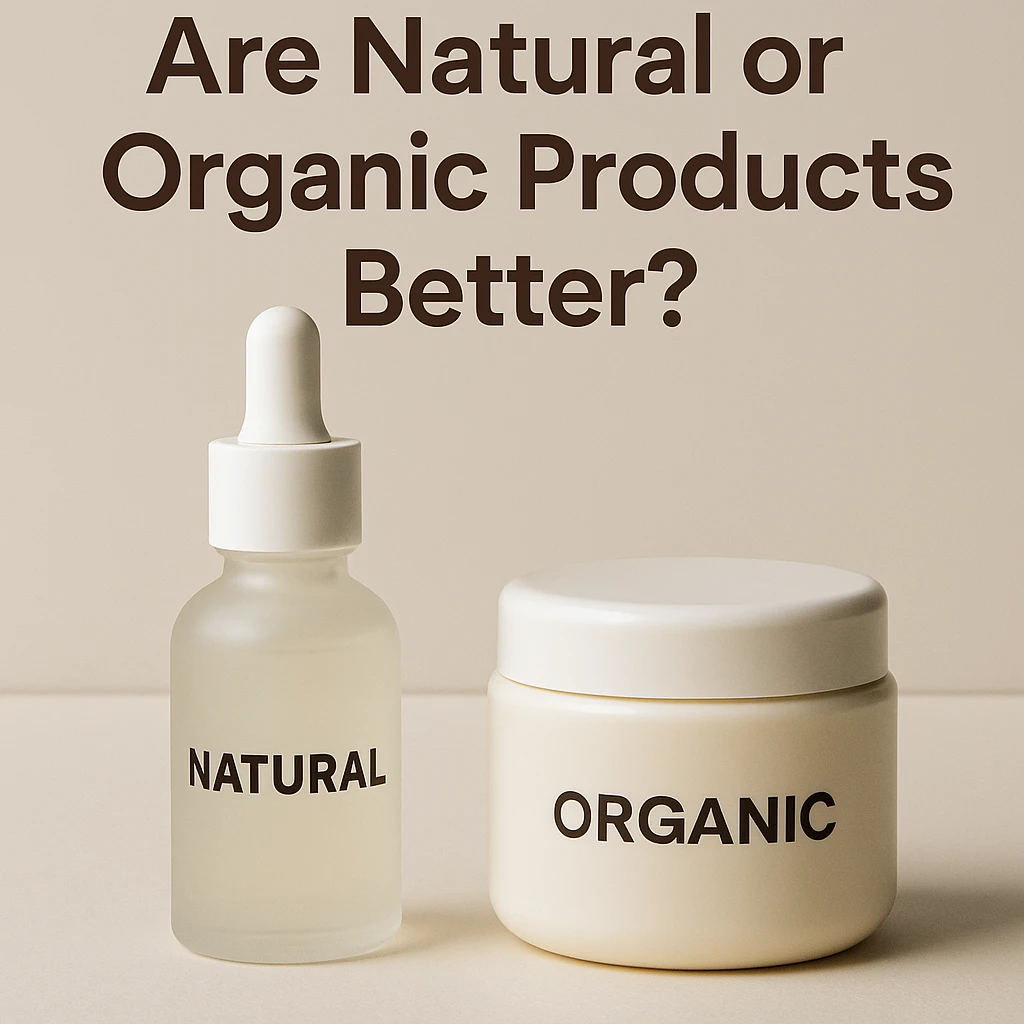Are natural or organic products better?
The terms "natural" and "organic" are commonly seen on skincare and beauty products, often implying they are safer, healthier, or more effective. But are these products truly better? The answer depends on several factors, including your skin type, sensitivities, values, and how a product is formulated overall—not just its label.
What Do "Natural" and "Organic" Mean?
-
Natural products typically contain ingredients derived from nature—plants, minerals, or animal byproducts—with minimal processing. Examples include aloe vera, coconut oil, and essential oils.
-
Organic products go a step further: the ingredients are grown without synthetic pesticides, fertilizers, or genetically modified organisms (GMOs). In some countries, "organic" must meet certification standards (like USDA Organic), but the term is not universally regulated.
However, "natural" isn't a protected or standardized term, so it can be used loosely by brands—even when the product still contains synthetic additives.
Are Natural or Organic Products Safer?
Not always. While natural ingredients can be gentle and beneficial, they can also be irritating or allergenic. For example:
-
Essential oils like lavender or citrus can cause allergic reactions or photosensitivity.
-
Natural fragrances may still trigger sensitivities, especially in those with eczema or rosacea.
On the other hand, many synthetic ingredients are highly researched, stable, and formulated to minimize irritation. Just because something is natural doesn’t mean it’s automatically safe—poison ivy is natural, too.
The key is how the product is formulated, not just where the ingredients come from.
Are They More Effective?
Effectiveness depends on the active ingredients and how well the product is formulated and preserved. Some natural ingredients like:
-
Green tea (antioxidant)
-
Aloe vera (soothing)
-
Rosehip oil (brightening and repairing)
—are backed by scientific research and can be very effective.
However, synthetic actives like retinol, niacinamide, and salicylic acid often have more extensive evidence and consistent results in addressing aging, acne, and hyperpigmentation. Natural alternatives may work more gently but also more slowly or less reliably.
Environmental and Ethical Considerations
Many people choose natural or organic products for ethical and environmental reasons:
-
Less impact on the environment (depending on sourcing and packaging)
-
Cruelty-free or vegan certifications
-
Avoiding synthetic preservatives or petrochemicals
If sustainability is important to you, organic or eco-certified brands may align more closely with your values.
Final Thoughts
Natural or organic skincare is not automatically better, but it may be better for you depending on your skin’s needs, sensitivities, and personal preferences. If your skin reacts poorly to synthetic ingredients or you prioritize clean beauty and sustainability, natural products can be a great fit. However, many synthetic products are safe, effective, and often more stable or scientifically supported.
The smartest approach is to focus on the ingredient list, not just marketing claims. Look for products that are well-formulated, suited to your skin type, and backed by real results—whether natural or not.

Related Blog
What Causes Oily Skin and Can It Be Managed Naturally? Exploring Root Causes and Gentle Solutions
Aug 2, 2025 by Admin
General
What Are the Signs That You Have Sensitive Skin? Key Symptoms to Help You Identify This Delicate Skin Type
Aug 1, 2025 by Admin
General